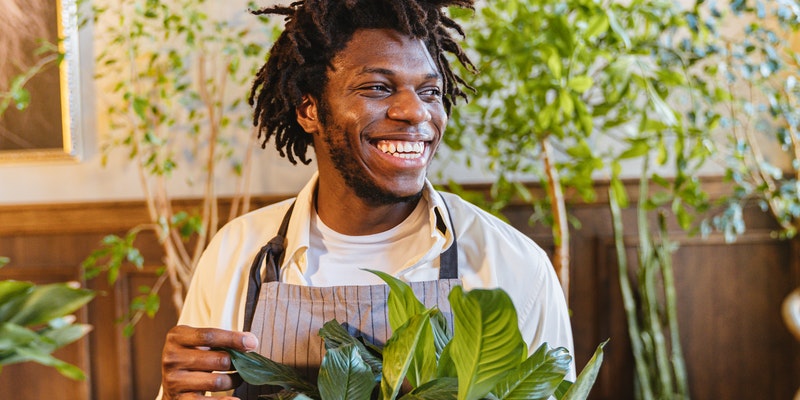When you’re passionate about gardening, it’s not always simple to articulate why. We often make a joke about how much we like playing in the dirt. That is a legitimate cause! Scientific evidence exists that playing in the dirt exposes you to soil bacteria that enhance your body’s serotonin production. At other times, we begin eagerly discussing the latest products from our backyard. The following is a summary of the Love Languages as they relate to gardening!
1. Gifts
This is simple; your offers of water and plant food, fresh soil occasionally, or even a larger pot are all acceptable presents. When transferring pots, use positive language; I used to lose plants doing so. They refer to this as plant shock.
Some individuals like giving presents, while others enjoy receiving them. In any case, your plants provide you with blooms, shade, foliage, and tasty treats. They then assist the individual who enjoys giving presents by supplying items to give or transform into gifts. I often demonstrate my concern for others via the exchange of presents. I like being able to offer folks fresh fruit and vegetables that I grew myself! I’ve even contemplated growing plants just for the sake of gift-giving. You may give your plant pure sulfur prills, which experts say helps control plant illnesses, protects plants from pathogens and pests, act as a natural insecticide, promotes stem development and healthy roots, and encourage leaf growth.
2. Physical touch
This is most likely the simplest of the gardening love languages to learn! Numerous folks want physical contact. This manifests itself in relationships via hugs, holding hands, and massaging. It is the tactile sensation of the earth in your hands while gardening. The feel of fruit while you are determining whether it is ripe for the plucking. It’s the sensation you get when you trim a plant’s leaves and bark. We are all aware of how tactile gardening can be, and although we may not always approach our trees and hug them, the physicality satisfies our desire for physical contact.
3. Quality time
Plants need a lot of time, but the act of paying attention to them, conversing with them, and watering them all constitutes quality time. After you’ve increased your good energy, you may like to sit in it and enjoy the rewards.
In the relationship realm, quality time is often defined by joint activities and discussion. Gardening allows you to spend valuable time with yourself! While this activity does need attention at times, your mind is free to converse with itself for most of the act of gardening.
Even the most difficult subjects seem less daunting when I’m pondering them over with the sun on my face and a plant in hand!
Occasionally, we are fortunate enough to have a gardening partner. This is an excellent exercise for fostering discussion and group connection! Have you ever spent time gardening with a child? The education and engagement will create memories that will last a lifetime for both of you!
4. Acts of Service
This category includes overlapping with gifts, shifting to larger pots, changing the soil, watering, pruning, and other plant upkeep.
In most partnerships, acts of service translate into doing things for one another. We are well aware that our plants are incapable of taking out the garbage or cooking us supper. In the love languages of gardening, this refers to the one who demonstrates their concern by acts of service. We always maintain our gardens! Weeding, trimming, fertilizing, and eradicating pests demonstrate our affection. To most of us who like gardening, it’s OK that the plants do not reciprocate since they meet our needs in other ways.
5. Affirmation
While plants cannot verbally express encouragement or compliments, they do it in other ways! Although I am a stickler for following fruit tree laws in my yard, there is always a sense of apprehension when I plant a bare root tree. When that plant begins to bud out or flower in the spring, it provides me with the finest type of confirmation that I planted it right! By producing fruit, plants demonstrate their appreciation for our efforts. They demonstrate that we are doing things correctly by living and growing in size. They verbally acknowledge our efforts as gardeners and provide us with little triumphs as each vine, tree, and shrub develops into our vision for them.


